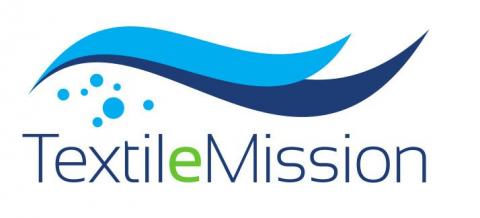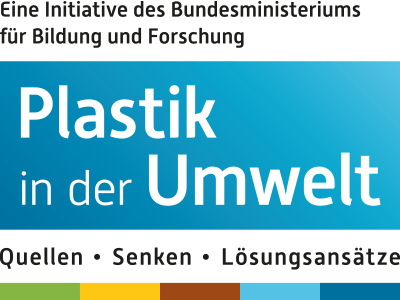TextileMission
TextileMission

Nicole Espey
Federal Association of the German
Sporting Goods Industry e.V. / BSI
Adenauerallee 134
53113 Bonn
Phone: +49 228/926593-0
e-mail: nicole.espey@bsi-sport.de
Textiles made of synthetic fibres can lose microparticles during household washing, which can then enter rivers, lakes and oceans. The goal of Textile- Mission was to reduce the related environmental impact. The project pursued an interdisciplinary approach with partners from the Sport Goods Industry, research, the detergent and household aplliance sectors, and environmental protection. On the one hand, sport and outdoor textiles with significantly lower microplastic emissions than in the past were developed through textile technology research and the optimisation of production processes. Textile researchers and the sportswear manufacturers involved also tested biodegradable fibres as an environmentally friendly alternative. With the support of the WWF, care was taken to ensure that other aspects of sustainability were also considered. On the other hand, a contribution was made to optimise wastewater treatment plant technology. Practical innovations at this level also help to reduce microplastic inputs from non-textile sources. In parallel, data on the extent and range of microparticle emissions from different textiles were systematically collected through tests of washing and laboratory wastewater treatment plants to improve the understanding of the respective material flows.
Main areas of work
- Status quo analysis: the microplastic output of marketable textiles
- Wastewater treatment plant technology: the retention capacity of different cleaning or purification steps
- Holistic perspective: sustainability aspects of alternative materials
- Textile research: biodegradable materials and new cutting and processing possibilities
- Product development: production and testing of prototypes
WP 1 Project management, communication and project-related research
Contact person
Nicole Espey, Federal Association of the German Sporting Goods Industry e.V., Adenauerallee 134, 53113 Bonn, e-mail: nicole.espey@bsi-sport.de
Short description
The Federal Association of the German Sport Goods Industry e.V. (BSI) coordinated the project and was responsible for public relations in consultation with the WWF. In addition to maintaining the website and sending out press releases, this also included organising multi-stakeholder events. The BSI conducted a study on the spread of microparticles and the polyester-based microparticle emissions associated with household laundry and collect data on the annual emissions of textile polyester microparticles. Finally, recommendations were given on how new materials, manufacturing processes, optimised wastewater treatment plant technology, etc. can help to sustainably reduce microparticle emissions.
WP 2 Development of textile structures for sports and outdoor applications with reduced particle emission in textile washing and based on biodegradable polymers
Contact persons
Prof. Dr. Maike Rabe and Prof. Dipl.-Des. Ellen Bendt, Niederrhein University of Applied Sciences, Faculty of Textile and Clothing Technology, Research Institute for Textile and Clothing, Reinarzstraße 49, 47805 Krefeld, e-mail: maike.rabe@hs-niederrhein.de
Short description
Starting with a status quo analysis, the risk of microparticle emissions from textiles during household laundry were determined in cooperation with the Technical University of Dresden and the BSI. For this purpose, standard articles from German households, problem articles made of fleece and ”top sellers” from the industrial partners involved were washed to quantify the microparticles released. Another focus was on the development of alternative materials, cutting and processing possibilities. For this purpose, low-emission construction, processing and finishing methods were researched and materials made of or in combination with biopolymers were produced. Finally, as a recommendation for the textile industry, a method for predicting the emission risk of newly developed textile articles was presented.
WP 3 Microplastics of textile origin – A holistic approach: optimised processes and materials, material flows and environmental behaviour.
Contact person
Hilke Anna Patzwall, VAUDE Sport GmbH & CO. KG, VAUDE Straße 2, 88069 Tettnang, e-mail: hilke.patzwall@vaude.com
Short description
The outdoor clothing specialist VAUDE provided materials and finished products for status quo analysis and assist in the selection of other test materials and products. Niederrhein University of Applied Sciences developed new materials and construction methods to be tested in coordination with the partners. After passing the performance test, the materials were then assembled into prototypes. The knowledge gained during the manufacturing process was in turn reflected into the research network - here the question was about i.a. the processability of the materials using conventional sewing machines, among other things.
WP 4 Polyester fibres: Reduction of microparticle release and material flow analysis in the environment
Contact person
Prof. Dr. Stefan Stolte, Technical University of Dresden, Institute of Water Chemistry, Chair of Hydrochemistry and Water Technology, 01062 Dresden, e-mail: stefan.stolte@tu-dresden.de
Short description
At the TU Dresden, an analysis and sample preparation method was established that makes it possible to quantify microparticles from wastewater streams and fractionate them according to size. In addition, the researchers investigated the retention capacity of textile (fluorescence-labelled) microparticles in the different stages of a laboratory wastewater treatment plant and identified efficient retention possibilities. Material flows were analysed including a first estimate of the Germany-wide textile microplastic emission from wastewater into water bodies /soils was made. In addition, biopolymer-based microplastics (obtained from washing tests with alternative materials at the Niederrhein University of Applied Sciences) were tested according to their environmental stability to derive design proposals.
WP 5 Consideration of other environmental issues related to the project, stakeholder involvement and communication at the end of the project
Contact person
Dr. Bernhard Bauske, WWF Germany, Kaiserstraße 70, 60329 Frankfurt e-mail: bernhard.bauske@wwf.de
Short description
Throughout the course of this project, WWF Germany ensured that sustainability aspects were taken into account even though they were not directly linked to the topic of microplastics. WWF conducted a study about possible areas of tension that may arise with alternative fibres made of bio-based plastics and wood. For example, the cultivation of textile raw materials vs. cultivation of foodstuffs. Another study focused on the retention of textile microfibre particles through various purification stages in wastewater treatment plants. At the same time, the WWF wanted to involve important stakeholders from NGOs, consumer associations and academia in the project.
Associated partners and their contributions
adidas AG provided materials and finished products for status quo analysis and assist in the selection of additional test materials and products. The sporting goods manufacturer examined the newly developed materials at the Niederrhein University of Applied Sciences, University of Applied Sciences for general marketability and participate in the production and testing of prototypes. The company also supported the BSI in its press and public relations work.
Henkel AG & Co. KGaA advised the Niederrhein University of Applied Sciences on the construction of the test bench. The company also supported household laundry and wearing test by contributing its expertise on typical household washing and drying parameters.
Miele & Cie KG provided the Niederrhein University of Applied Sciences with four household washing machines for the course of the project. In cooperation with Henkel AG & Co. KGaA, the washing machine manufacturer accompanied the household laundry tests and supported the modification of the washing processes with its expertise.
Polartec LLC: The world‘s largest fleece manufacturer Polartec LLC supported the project with its expertise in the production of fleece and provide standard products for comparisons. In addition, materials developed by the Niederrhein University of Applied Sciences were prototyped and tested for scalability at the Polartec production sites.
